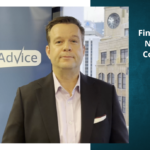If something is important to you, chances are it may need protecting. Protect what you have – starting with your family, your lifestyle, assets, and future earning ability.
How many of us could afford to replace our home, car, or other hard-earned possessions if something happened to them? Most of us need insurance cover to make it through, otherwise we may erode any savings or wealth we have created if something goes wrong.
Family members who depend on us may need protecting in case we die or are unable to work because of illness. It’s also important to let our loved ones know what we want to happen with our money and property when we die or are unable to make decisions for ourselves.
Sometimes we overlook that we are our biggest income stream (well, normally) and therefore our biggest asset. We are quick to insure our car and our house, but not so much ourselves.
Insurances
Kiwis are notoriously underinsured compared to people in other First World countries. It’s not because we don’t care – it’s just that as a country we are still financially maturing. Having insurance can help us bounce back when something unexpected happens. This could be related to health, loss of income, or things you own, such as your car or home. Insurance usually covers unexpected and accidental events.
When you take out insurance you essentially transfer the risk to the insurance company, and you pay a premium for doing that. Your policy will cover exactly what you are covered for. You will pay a premium for this cover, so it’s important to understand what you need and how to find the right information to ensure you have the right cover.
There is a lot of information online around all types of insurance, including health insurance, life, and general (house, contents, car), or you can seek advice that may also help you get cover that meets your budget.
Wills
A will stipulates how your money and property should be dealt with when you die. No matter how young or old you are, having a will is important if you want to avoid stress on your family left behind.
If you pass away without a will, your family and loved ones may have a difficult time dealing with your estate, particularly if you have assets worth more than $15,000.
Consider the complexity of your situation and seek suitable advice. Remember, wills do need to be reviewed from time to time, and particularly if you get married, divorced, have children or go through other life changes.
A will can be drafted by someone with experience, such as a lawyer or trustee company. There are online options available that might be more affordable and straight forward to create if you follow the procedures carefully.
A well thought-out and up-to-date will allows your family to grieve without putting them through the additional stresses of dealing with lawyers and even courts.
If you have young children, you may wish to nominate a guardian for their daily care and to make decisions for them. But this can be quite a complex area, so make sure you get advice.
Enduring powers of attorney
An enduring power of attorney (EPA) allows someone, usually one or more family members or even a lawyer, to make decisions on your behalf if, through poor health or other reasons, you cannot do that yourself.
There are two types of EPA – one for money and property and the other for personal care and welfare.
Many Kiwis don’t have an EPA until they are older, thinking it matters only near the end of their life. But when you consider statistics regarding accidents and serious illness in New Zealand you can see that doing it earlier has benefits.
An emergency fund
Too many people live pay to pay and have no reserves if something goes wrong, and have to go into debt or borrow money from family. Emergency funds provide peace of mind if this occurs.
Set up an emergency fund. Work out what is the right amount to have as a backup in case you need access to cash quickly. It might be $1000, $5000, or $10,000 depending on your personal needs and how many people in your family you need to look after financially. Make sure you have enough to cover unexpected bills, fix a car breakdown, or an unexpected illness. Try saving in a separate bank account and keep this locked away but add to it regularly each pay period.
There are many ways to protect what we have. Now consider your own situation and what you have in place to protect your financial health, wealth and wellbeing. There’s a lot of information available online, but remember you can check with a Financial Adviser to get the advice that’s suitable for you and your family. If you have the right solutions set up now, it could save you money in the long run and provide peace of mind for everyone.





